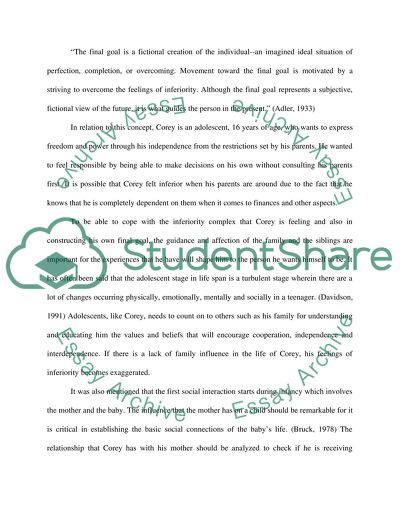Cite this document
(“Children Development: Analysis the Personality and Behavior of Corey Research Paper”, n.d.)
Children Development: Analysis the Personality and Behavior of Corey Research Paper. Retrieved from https://studentshare.org/psychology/1501152-children-development-essay
Children Development: Analysis the Personality and Behavior of Corey Research Paper. Retrieved from https://studentshare.org/psychology/1501152-children-development-essay
(Children Development: Analysis the Personality and Behavior of Corey Research Paper)
Children Development: Analysis the Personality and Behavior of Corey Research Paper. https://studentshare.org/psychology/1501152-children-development-essay.
Children Development: Analysis the Personality and Behavior of Corey Research Paper. https://studentshare.org/psychology/1501152-children-development-essay.
“Children Development: Analysis the Personality and Behavior of Corey Research Paper”, n.d. https://studentshare.org/psychology/1501152-children-development-essay.


